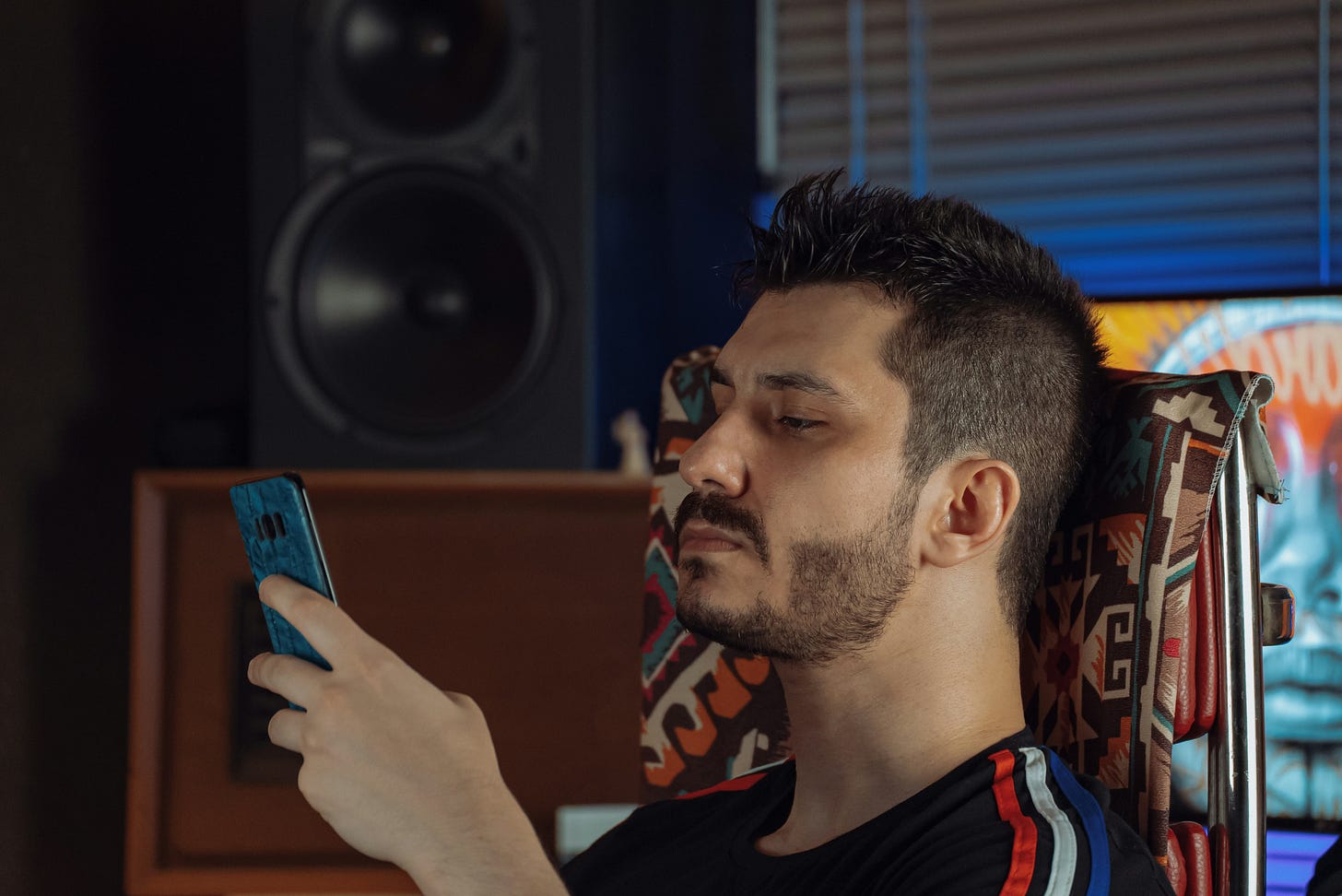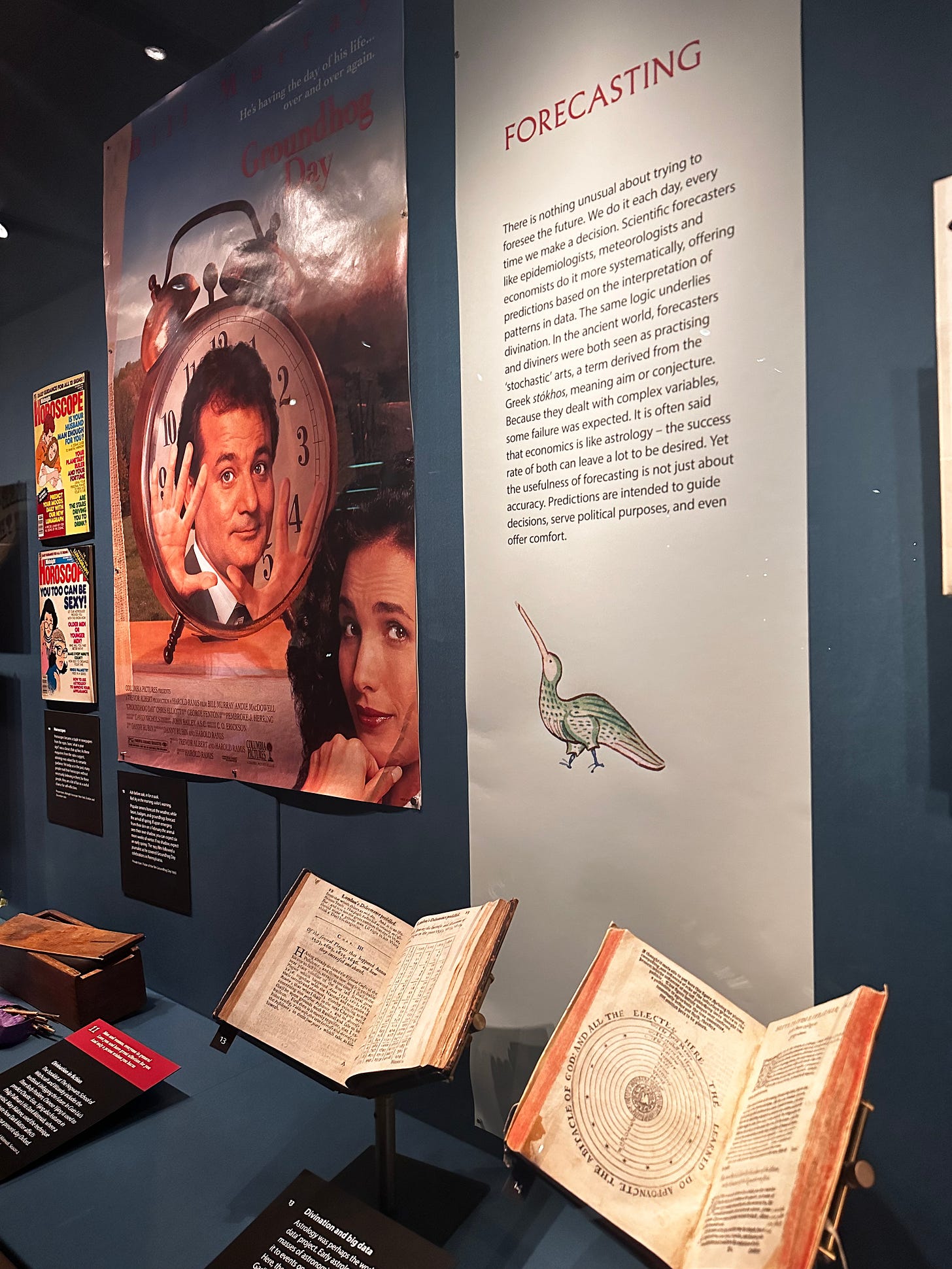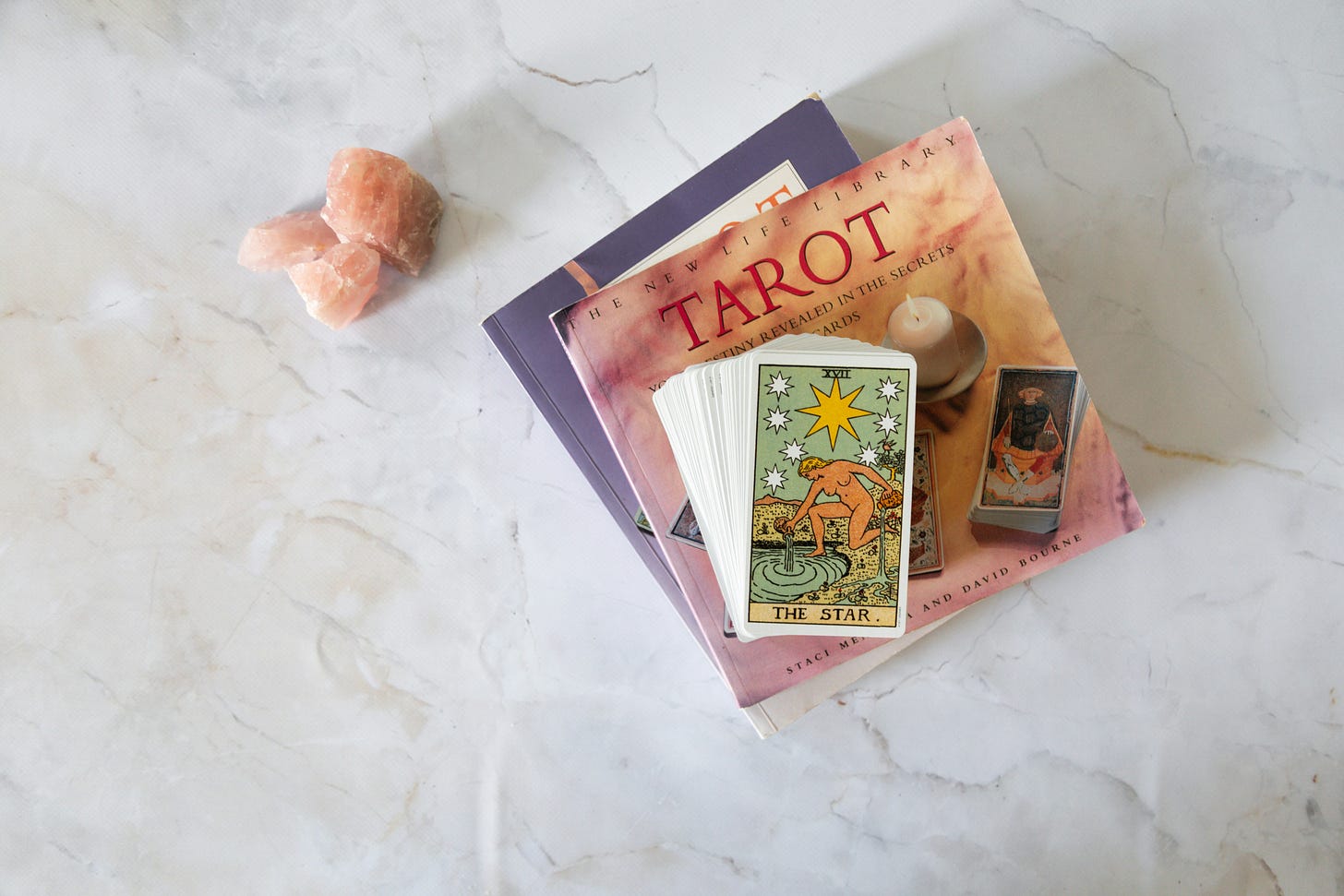Fortune tellers, TikTok tarot, and the quest for clarity
How Gen Z is redefining divination and searching for answers in a new age.
The digital age of divination
Prophecies obscurely whispered by a priestess; tarot cards laid out under flickering candlelight — divination has always been a means for humans to ask for answers. But in 2025, the mystics are online. The art of divination has become digitised, aestheticised, and catered to our X streams.
Unlike millennials, who casually flipped to Cosmo’s scope section for fun, Gen Z is taking astrology seriously—sometimes even using it as a major tool on their quest of self-identity. Knowing your sun sign just isn’t enough anymore. Now, it’s about understanding your full natal chart, decoding your Venus placement for insights into relationships, and analysing Mercury retrogrades as a form of basic self-care.
Noel Garcia, an evolutionary astrologer, explains: ‘More people, especially younger generations, are searching for meaning in different ways. Astrology gives them a language to understand themselves better. It’s not just about fate anymore; it’s about self-awareness and personal growth.’
Astrology is also deeply embedded in internet culture. Reels about chaotic Geminis and emotionally unavailable Aquariuses are instantly relatable, while birth chart compatibility tests have turned into a new form of flirting. ‘I always joke that knowing someone’s moon sign tells you more than their dating profile ever will’, Noel adds with a laugh.
The algorithm as oracle
Beyond astrology, tarot readings have found an unlikely home in the fast-paced world of TikTok. What was once a deeply personal practice, often done in intimate, one-on-one settings, has transformed into a communal, almost viral experience.
Some might argue that these readings are merely entertainment, a 21st-century equivalent of pulling a fortune from a cookie. Others, however, see them as a legitimate way to pause, reflect, and find guidance—whether the source is mystical or psychological.
Hillary Coke, a Western astrologer and tarot reader at Nebula, shares her thoughts: ’It’s fascinating because, in a way, the algorithm is mirroring the randomness of shuffling a deck. People see a reading on their For You Page and feel like it was meant for them. And maybe it was! Or maybe it’s just AI doing what AI does. Either way, if it resonates, does it really matter?’
Jim Hassan, a cultural astronomy and astrology student, adds: ‘TikTok tarot makes divination accessible, which is great. But people should be mindful that just because something feels personal, it doesn’t always mean it’s divinely guided.’
Noel advises that instead of taking Astrology and divination practices as predictions, take them as ‘inspiration’ and ‘empowerment’, he advises people to use astrology to help them gain a sense of self-understanding to motivate future decisions.
Rise of digital mysticism
Beyond consuming mystical content, Gen Z is also actively shaping it. There’s a strong ‘DIY’ approach to modern divination—people are not just receiving messages; they’re learning how to interpret them.
‘Gen Z isn’t just following astrology and tarot; they’re learning it. They’re pulling their own cards, checking their own transits, even writing their own horoscopes!’ Noel says.
Hillary also highlights this shift: ‘Gen Z is increasingly creating their own path to spiritual discovery, often using platforms like Nebula to explore various spiritual tools. The ability to learn and engage with these practices online has become a cornerstone of their self-awareness journey.’
Jim notes: ‘Divination used to be something you sought out from an expert. Now, it’s something you learn, practice, and even teach online.’
Divination is an ancient practice with a long history, constantly evolving over thousands of years.
The Bodleian's ‘Oracles, Omens, and Answers’ exhibit explored society's ongoing relationship with divination, showing it's nothing new.
The search for clarity and meaning has persisted for centuries, with methods like spider divination, tarot cards, and astrology answering the same timeless questions we still ask today—’am I going to have kids?’, ‘Is he the one?’, ‘Is this career in my cards?’ - Digital mysticism is simply the latest form of a practice that predates us all.
Capitalism and the occult
With any rising trend comes commercialisation. The mainstreaming of divination has led to big brands capitalising on the mystic aesthetic. Astrology-themed clothing, crystal subscription boxes, and luxury tarot decks have flooded the market.
‘It’s a double-edged sword, on one hand, more people are discovering these practices, which is amazing. But on the other hand, when spirituality becomes a commodity, it can lose its depth. Buying a crystal doesn’t make you spiritual—engaging with it does.’, says Noel.
Noel recommends people beginning to take an interest in spirituality and divination should visit a professional Astrologer or learn the practice thoroughly as opposed to taking surface level advice from mainstream media.
Noel claimed ‘Astrology is becoming fashionable, like yoga. There's good yoga and superficial yoga. The same will happen with astrology. The question is, make it conscious. You won't find that in a one-minute TikTok video. You'll find it by looking deeply at your chart, understanding yourself deeply, and reflecting on your life.’
He described his services as an astrologer, emphasising that his consultations span over two hours and are designed for in-depth discussion and genuine understanding, not superficial interactions.
For those looking to start their journey, he advises to ‘Start with a psychological or evolutionary astrologer. It's about knowing yourself deeply. There are no two Cancers or Capricorns the same. You need to know the specificities of your natal chart because that's what makes you unique.’
You can also book a consultation at Noel’s clinic here.
The future of mysticism
As technology continues to evolve, so too will divination, but no matter how advanced these tools become, the core appeal remains the same: the human desire for guidance, meaning, and a deeper connection to something greater than ourselves.
‘In the end, astrology and tarot are just tools,” Noel reflects. ‘The real magic is in how people use them—to connect with themselves, with others, and with the universe.’
Whether you see TikTok tarot as a fun distraction or a genuine spiritual guide, one thing is clear—our collective quest for clarity isn’t fading anytime soon.





